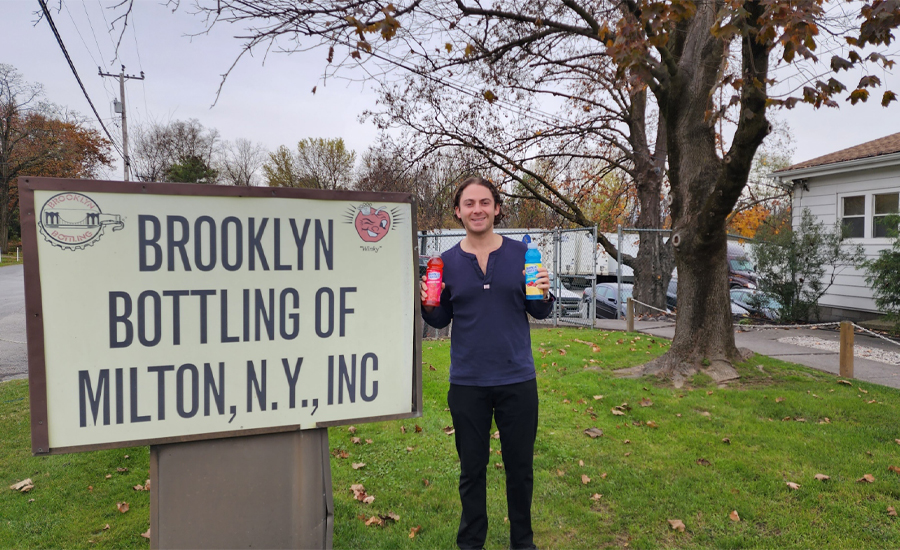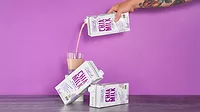Special Report
Contract manufacturers adjust to beverage market shifts
Beverage-makers increasingly turning to co-packing to compete in today’s market

Image courtesy of Getty Images
Known as a leader in the expansion of the American steel industry in the late 19th century and becoming one of the richest Americans in history, industrialist Andrew Carnegie is quoted for having said, “No man will make a great leader who wants to do it all himself or get all the credit for doing it.”
Today, as the world is witnessing a “fourth industrial revolution,” manufacturing has evolved to where many companies are outsourcing operational activities instead of going it alone. For instance, as the beverage industry is rapidly growing, introducing many new products and technologies, experts note that more beverage manufacturers prefer contracting or co-packing over in-house bottling and filling activities.
Noting the increasing trend of outsourcing packaging operations to specialized firms, Transparency Market Research Inc. (TMR), in its November “Contract Packaging Market Size” report, anticipates that the global contract packaging market will flourish, with a compound annual growth rate (CAGR) of 6.6% from 2021 to 2026. As of 2023, the demand for contract packaging is expected to close at $50.8 billion, according to TMR.
“Contract packaging companies often have economies of scale and specialized equipment, which can lead to cost savings for their clients; thus, the demand for contract packaging is high in industries where efficient packaging is critical for product success,” the report states. “Contract packagers are well-positioned to provide the right packaging for shipping and customer experience.”

Rich Clifton, portfolio manager for beverage and robotics at Covington, Ky.-based R.A Jones, points to a few beverage market shifts impacting contract manufacturers and bottlers.
“First off, alcohol trends indicate that consumers are trading up to more premium brands in smaller package counts, requiring contract manufacturers/bottlers to integrate flexible machinery to run a variety of can and carton size ranges,” Clifton says. “In terms of non-alcoholic drinks, the biggest trends are the ‘better for you’ beverages.”
Myles Miller, vice president of operations at Brooklyn Bottling, Milton, N.Y., echoes similar sentiments, noting that younger generations such as Gen Z and millennials care more about the functionality of beverage products.
“We are noticing an increase in trends for functional products, specifically in the hot-fill space,” Miller says. “Prior to taste, consumers are interested in how that particular product will benefit them (i.e., benefits for gut health, brain support, etc.).
“An additional concern of some consumers is to use environmentally friendly containers,” he continues. “In result, we are noticing an increasing demand in can production. Fortunately, we are capable of producing both hot and cold fill processes in cans of multiple packs and sizes (including energy drinks, teas, flavored waters, and sodas).”
Meeting trends for today, tomorrow
As the beverage market expands and diversifies based on consumers’ changing preferences, experts highlight how co-packers can support a brand manufacturer’s newest product launch.
“More entrepreneurs are looking to provide variety to their customers by offering the opportunity to purchase club multi-packs,” Brooklyn Bottling’s Miller says. “We are accommodating them by adding the appropriate equipment in order to provide our customers with this service/option.”
“We are noticing an increase in trends for functional products, specifically in the hot-fill space. Prior to taste, consumers are interested in how that particular product will benefit them (i.e., benefits for gut health, brain support, etc.)"
— Myles Miller, vice president of operations at Brooklyn Bottling Co.
R.A Jones’ Clifton notes that, as smaller serving sizes gain traction with consumers, these packaging trends cause contract manufacturers/fillers to examine their equipment to ensure it can accommodate unique package shapes, sizes, or even materials.
“A manufacturer can dramatically increase production line flexibility by implementing innovative technology that offers greater flexibility for single tier and multi-packing while still maintaining overall equipment effectiveness (OEE),” Clifton explains.
As far as the most common requests from emerging beverage companies, Brooklyn Bottling’s Miller points to requests for smaller runs in order to accommodate the slow and steady growth of their markets.
“This impacts high speed/volume bottling facilities due to shorter changeover periods/additional costs,” he explains. “Other than increasing our capacity for high demand hot-fill products by investing in the right areas, something we will consider in the future is adding a smaller line to support beverage entrepreneurs/start-ups in producing their smaller runs to get their feet off the ground.
“More than ever we are seeing emerging brands looking for the right partner to help them scale,” Miller continues. “We take pride in being a multi-generational bottler that is big enough to handle large volume, but small enough to give brands that personal touch of a family owned business.”
Looking for a reprint of this article?
From high-res PDFs to custom plaques, order your copy today!







